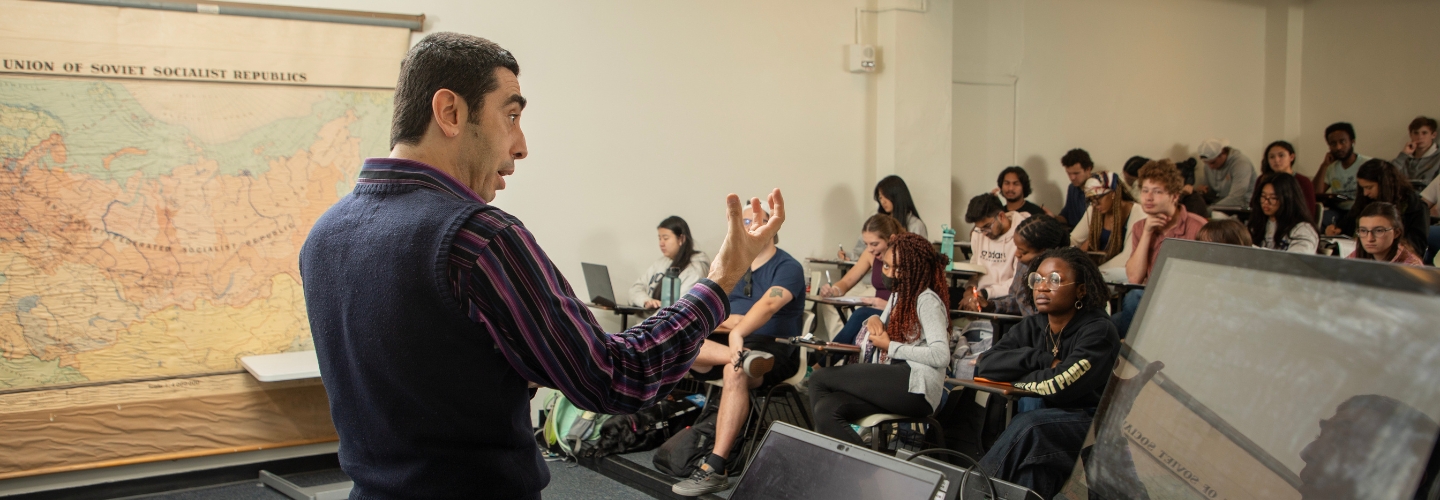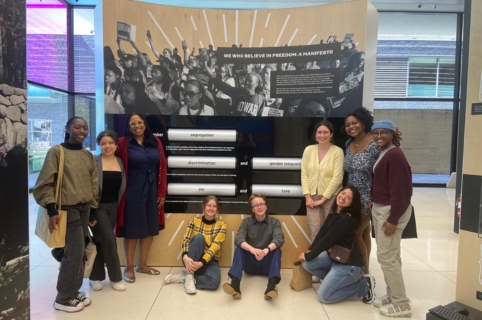The School of History and Sociology offers dynamic undergraduate programs that combine broad-based academic training with real-world applications. Students can pursue a bachelor's degree or complement their education with minors and certificates in areas such as history, sociology, and science, technology, and society. These programs are designed to foster critical thinking, interdisciplinary understanding, and skills for addressing modern challenges.
The B.S. in History, Technology, and Society (HTS) blends history and sociology to examine global issues at the intersection of culture, technology, and science. This interdisciplinary program combines coursework in humanities, STEM, and social sciences, offering the critical tools needed to understand and shape the modern world.
Why Study History and Sociology at Georgia Tech?
- Build In-Demand Skills: Develop expertise in research, analysis, and communication that employers consistently rank among the most desirable traits in new hires
- Customize Your Experience: Our flexible curriculum allows you to tailor your studies to your passions with options for internships, global experiences, and undergraduate research
- Interdisciplinary Focus: Combine humanities and social sciences with STEM coursework for a well-rounded education that positions you for success in diverse fields
Student Life
Blurb / Gallery Set
Gain real-world experience and build professional networks by working with government agencies, museums, nonprofit organizations, or industry leaders. Internships allow you to apply classroom knowledge to practical challenges and stand out to future employers.
Study abroad to gain a global perspective on history and society. Participate in programs like the International Plan, which integrates international study into your degree for a globally recognized distinction.
Work closely with faculty on independent research projects or participate in the Research Option. Present your findings at conferences and gain valuable skills for graduate school or your future career.
Minors and Certificates
Blurb / Gallery Set
Quick Links
Blurb / Gallery Set
Build a Career with History and Sociology
An HTS degree equips students with versatile skills in research, analysis, and communication, preparing them for diverse career paths. HTS graduates thrive in industries such as public policy, education, business, law, healthcare, and technology. Many pursue advanced degrees or enter roles in government agencies, museums, nonprofit organizations, and corporate settings.
The program emphasizes critical thinking, interdisciplinary problem-solving, and an understanding of global and social issues—qualities that employers value in a rapidly evolving job market.


 Contact
Contact









